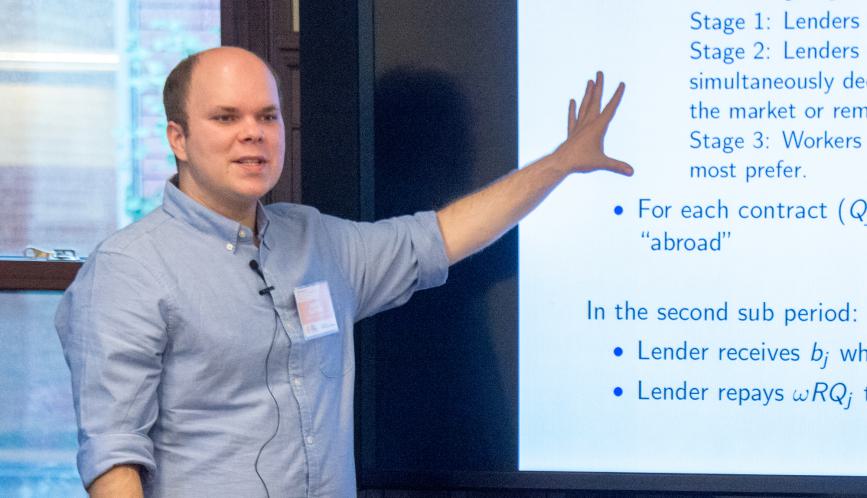Markets network member Andy Glover is a Senior Economist at the Federal Reserve Bank of Kansas City. He is a quantitative macroeconomist, with an interest in how microeconomic heterogeneity interacts with legal institutions and market structures. His recent work is on entrepreneurship, the distributional effects of recessions, and the cyclical consequences of adverse selection in labor markets. Most related to the Market group, he is interested in how human capital accumulation is affected by adverse selection, either between a student and creditors or between college graduates and employers.
Describe your area of study and how it relates to current policy discussions surrounding inequality.
I work in quantitative macroeconomics, with a focus on how policies and aggregate shocks affect people who differ along a different dimensions: age, education, sector of employment, wealth, and income. In HCEO WP 2018-063, Dean Corbae and I study how employer credit check bans redistribute from people with good credit to those with bad, at the expense of labor market efficiency. I have studied, with Heathcote, Krueger, and Rios-Rull, how the Great Recession affected young and old people based on their exposure to earnings losses relative to gains from higher returns on equities (here is a link to that paper). In recent work, I have studied the distributional effects of lockdowns in response to COVID-19, as they disproportionately hurt the economic health of young people while improving the physical health of the elderly (here is a link to that paper).
What areas in the study of inequality are most in need of new research?
I think there will be years of work to do understanding the distributional effects of COVID-19, both the disease and the policy response. I am personally interested in seeing how it affects credit access for people with different credit ratings when the pandemic started.
What advice do you have for emerging scholars in your field?
I think quantitative macroeconomists should be well versed in applied microeconomics and causal inference, in addition to our traditional strengths in computational methods and general equilibrium.



